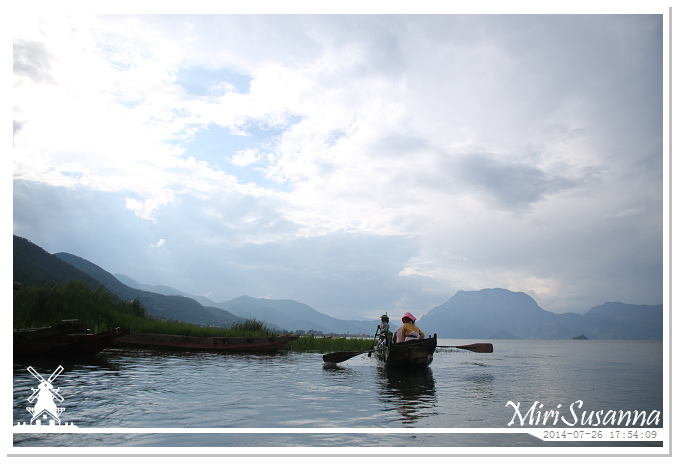
來到秀麗的瀘沽湖,讓我們對神秘的女兒國有了進一步的認識。瀘沽湖位於雲南省與四川省之間,湖邊的居民以摩梭人為主。摩梭人屬母系社會,女性當家,男不婚、女不嫁,有走婚的習俗。我們因第二天得提早啟程回麗江,遊瀘沽湖的行程就只選了坐豬槽船遊湖及晚上的篝火晚會。雖然沒有環湖,錯失了好些景點,但還是不虛此行,收穫不少。
During our visiting at Lugu Lake, we learn more about the real Women’s Kingdom. Lugu Lake is located on the border between Yunnan Province and Sichuan Province. The main inhabitants here are Mosuo people, who still remain their traditional culture and matriarchal society structure. There are no marriage and women play a main role in family and society. This’s why this area is also named as Women’s Kingdom. Due to the road condition, we needed to depart the next day on time in the morning to go back to Lijiang. So we only had the chance to take a boat tour at the lake and to join the campfire party in the evening. Although we missed some interesting places to visit, but we gained a lot of wonderful memories in this trip.

景區門口。
Entrance of Lugu Lake Scenic Area.
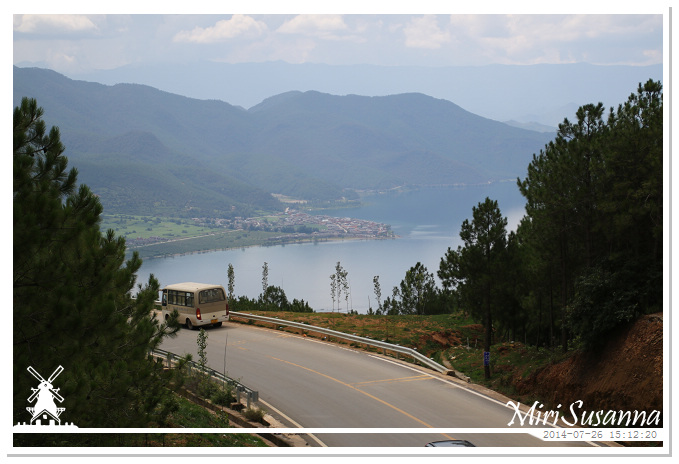
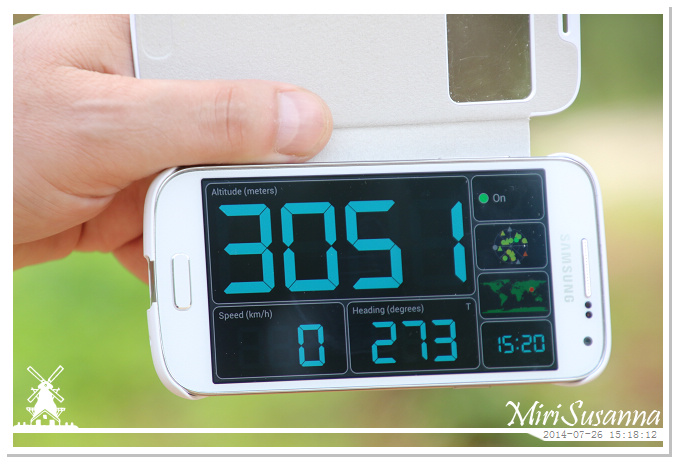
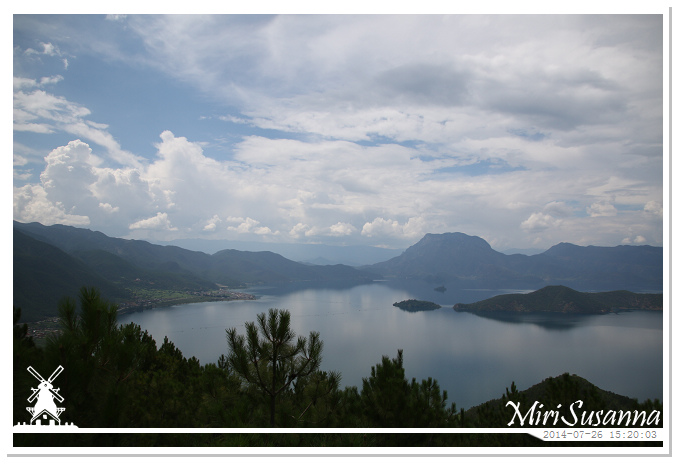
進入景區後,先到觀景台欣賞瀘沽湖的大景。
We went to the visitor centre nearby the entraince to see the view of Lugu Lake.
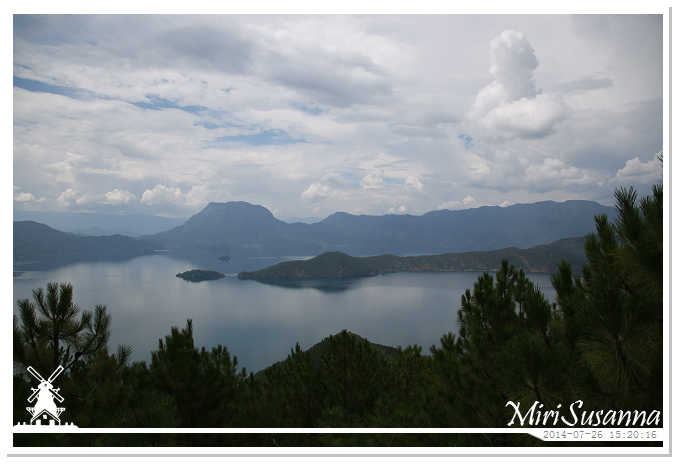
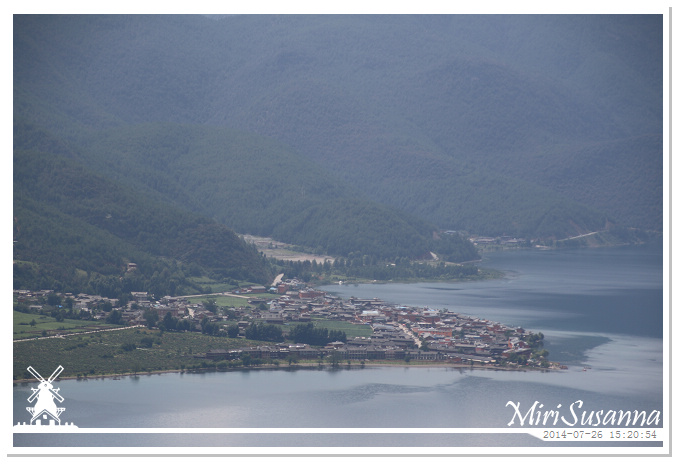
大落水村。
Daluoshui Village.
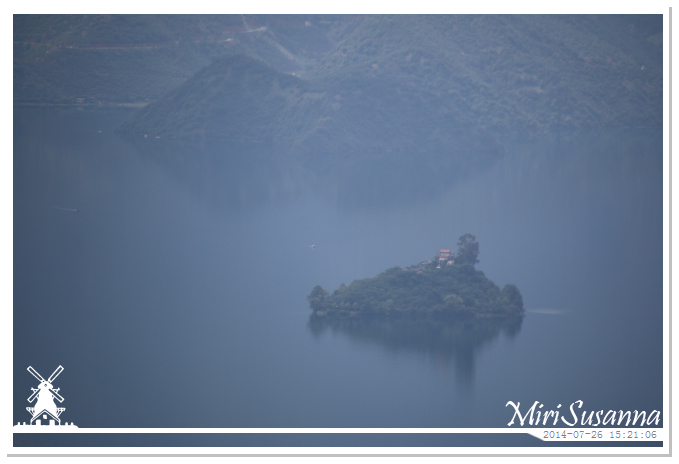
湖心島,又名土司島。
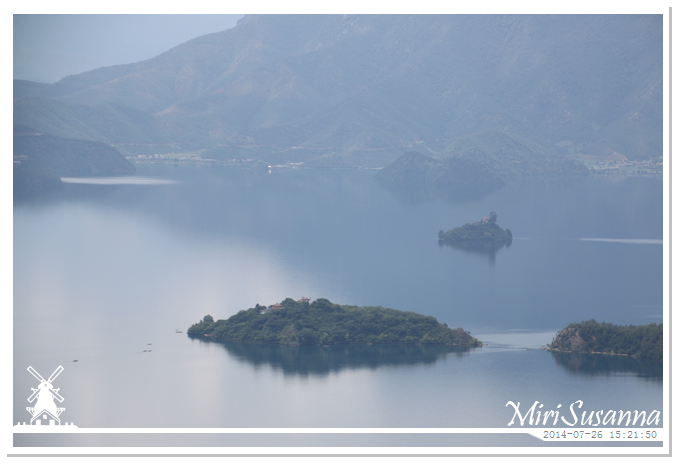
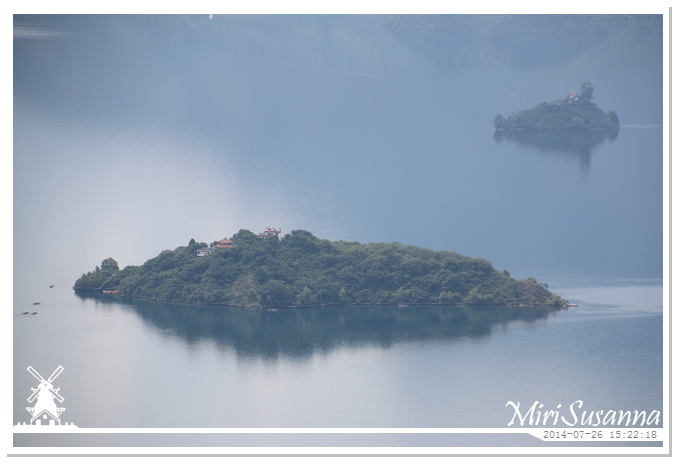
這是待會要坐豬槽船去參觀的裏務比島。
This is Liwubi Island where we were going to visit by boat.

大落水碼頭。
Pier at Daluoshui Village.

前方是格姆女神山。
In front of us is Gemu Goddess Mountain.

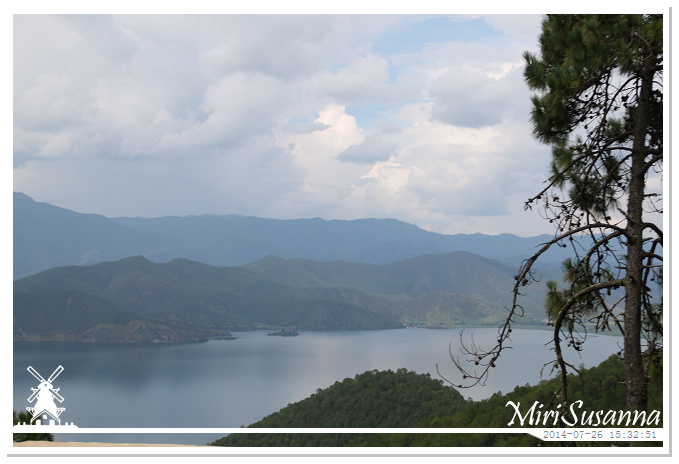

湖上有許多豬槽船在穿梭。
Many boats were taking tourists to visit the islands.
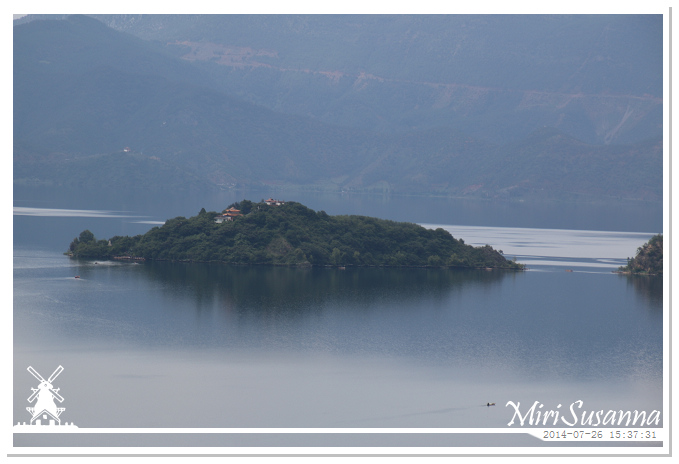
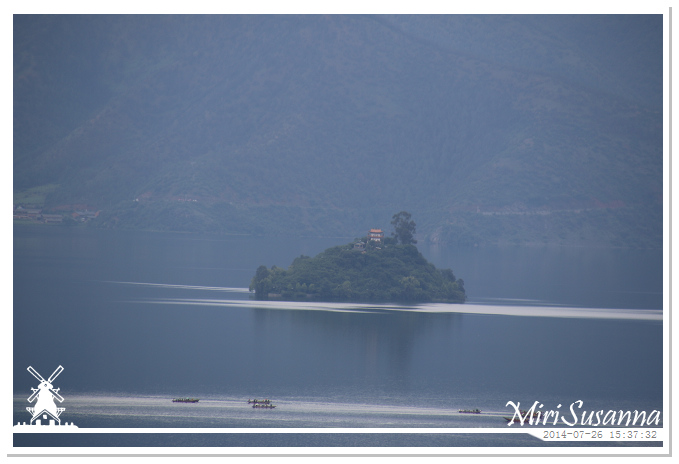
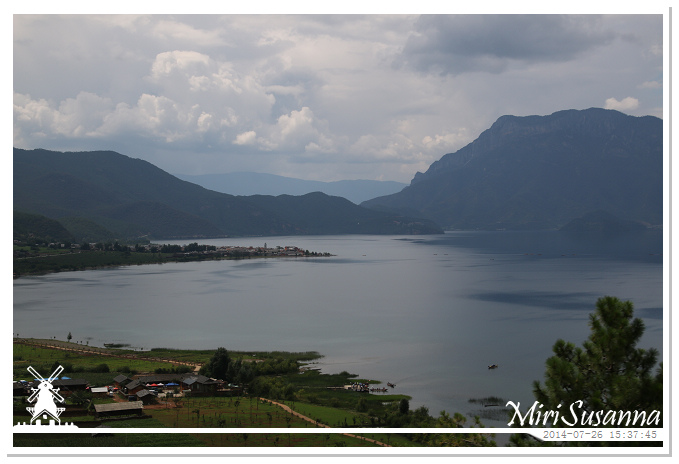
我們到三家村碼頭去坐船,也就是照片下方的這個碼頭。
We took a boat at the pier of Sanjia Village (bottom of this picture).
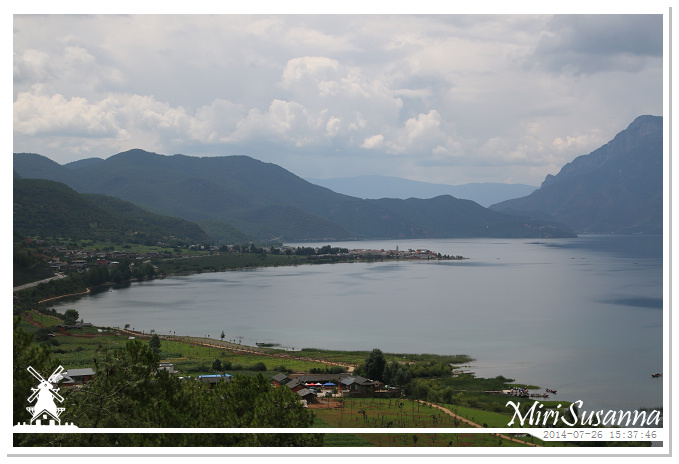
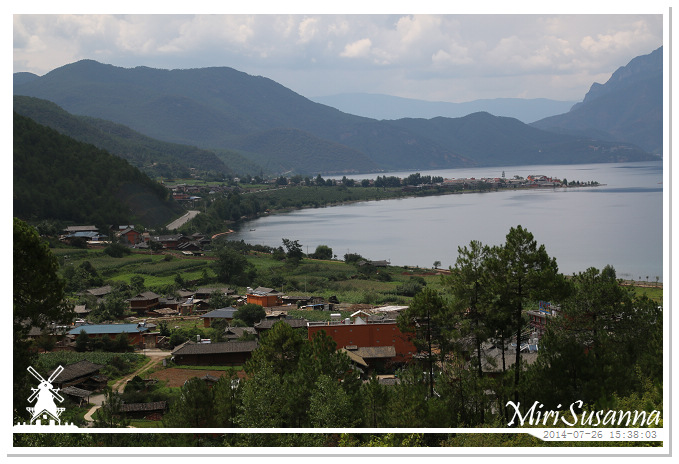

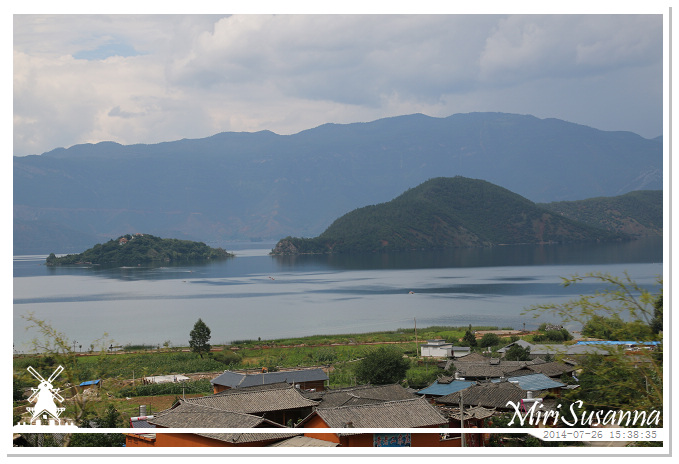
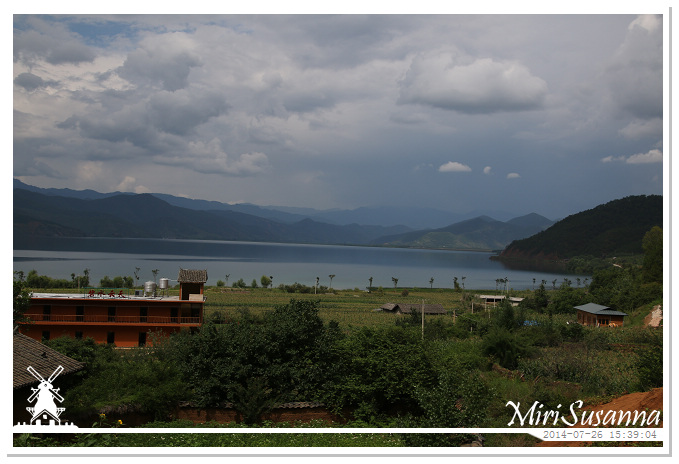
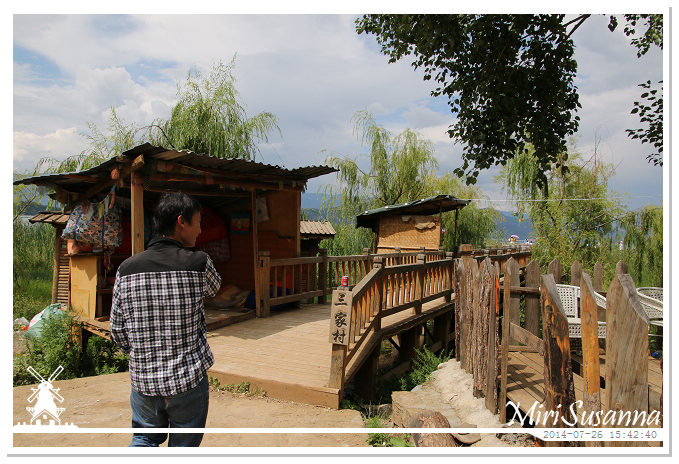
去碼頭坐豬槽船。
Going to take a boat.
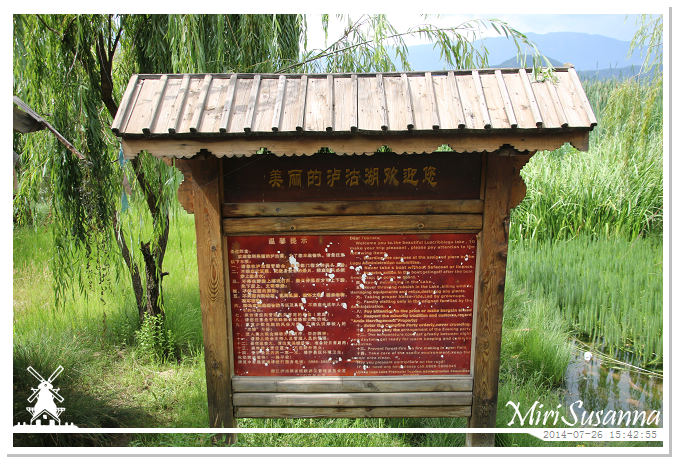

 從山上到湖邊,海拔高度就差了三百多米。
從山上到湖邊,海拔高度就差了三百多米。
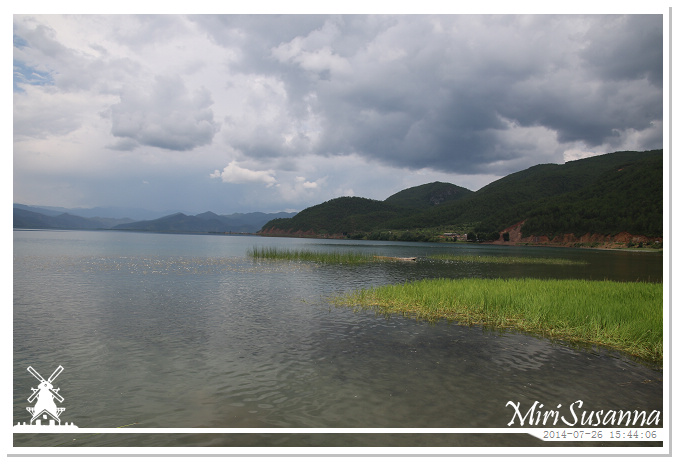
半邊明亮,半邊陰暗。
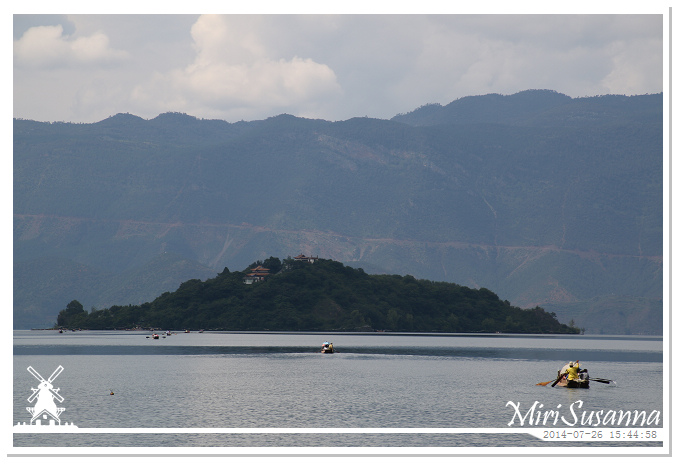
從另一個角度觀島。
Looking to Liwubi Island from another altitude.

豬槽船。
Local wooden boats.
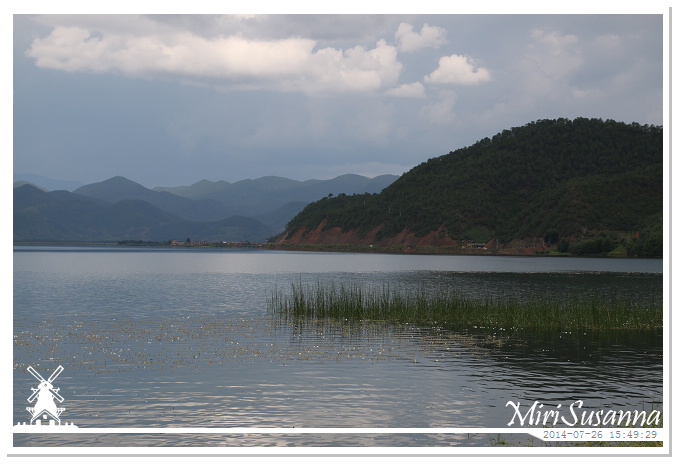
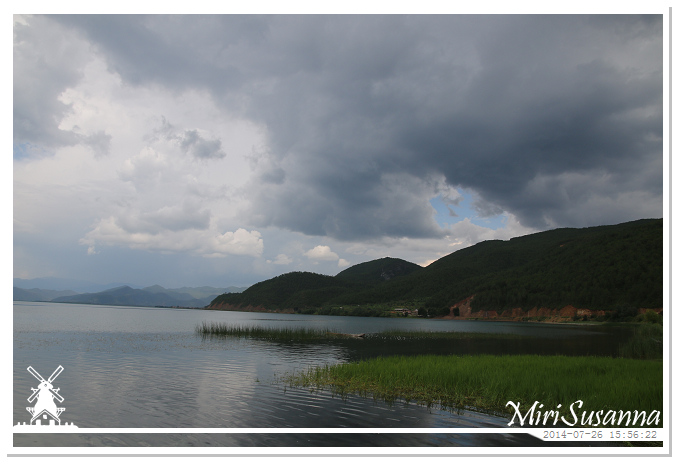
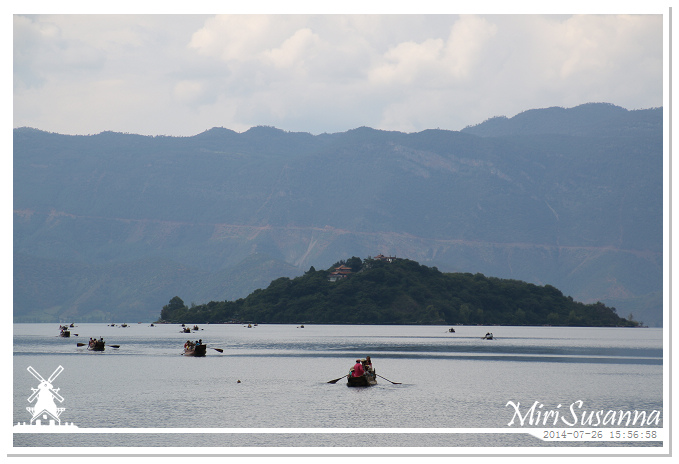
排隊等船。
Waiting for a boat.

上船了。
On board.
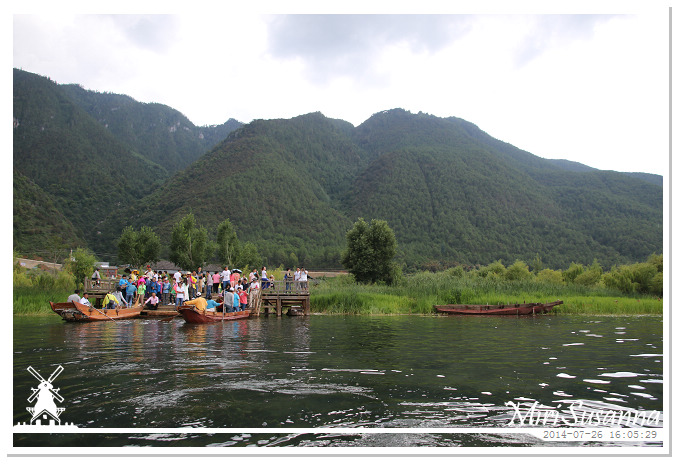
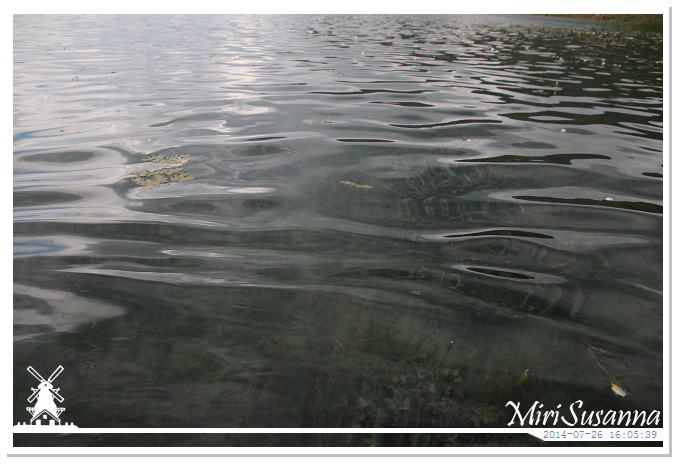
清澈的湖水。
Clear water.
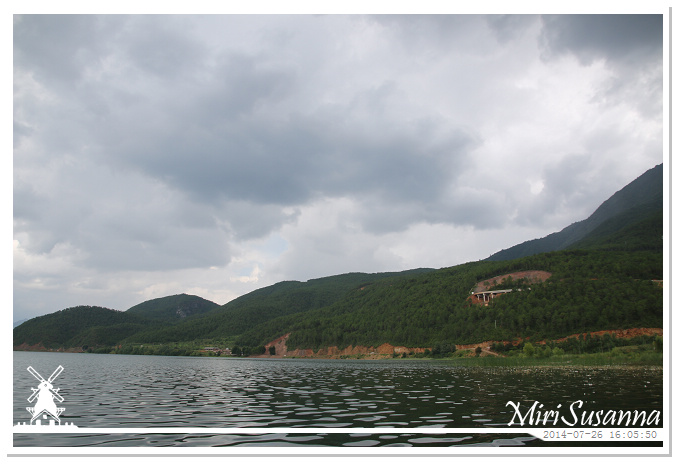


辛苦划船的阿妹,臉上帶著笑容。

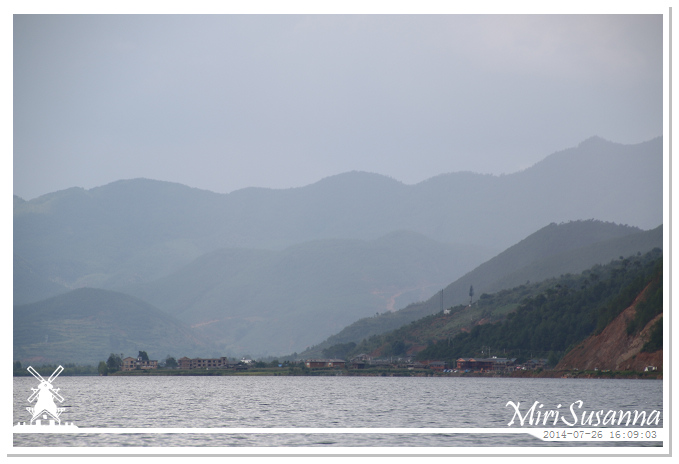


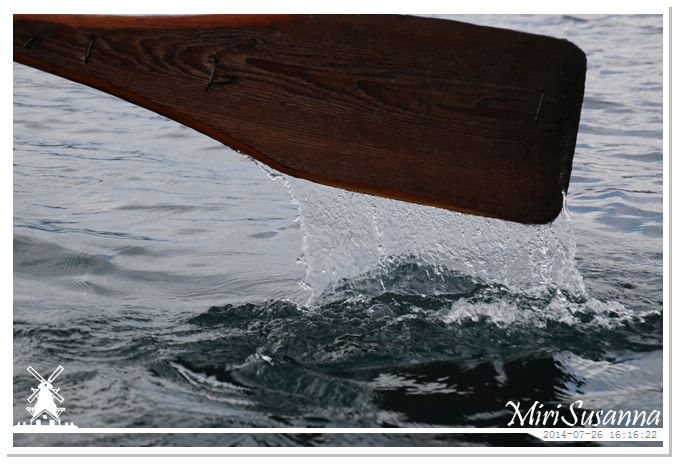
為了保護著美麗的瀘沽湖,所有的船隻都是用木漿來划。
To protect the nature resource, motorboats were not allowed at this lake.
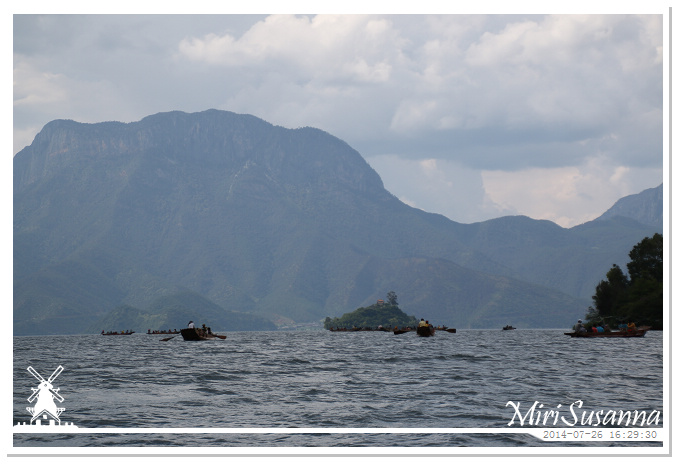
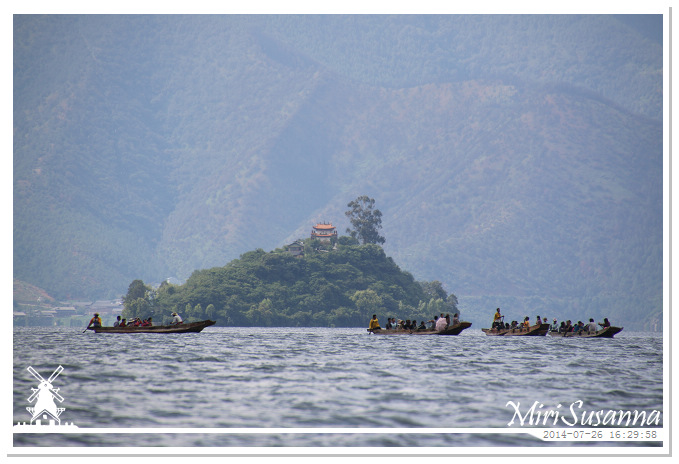
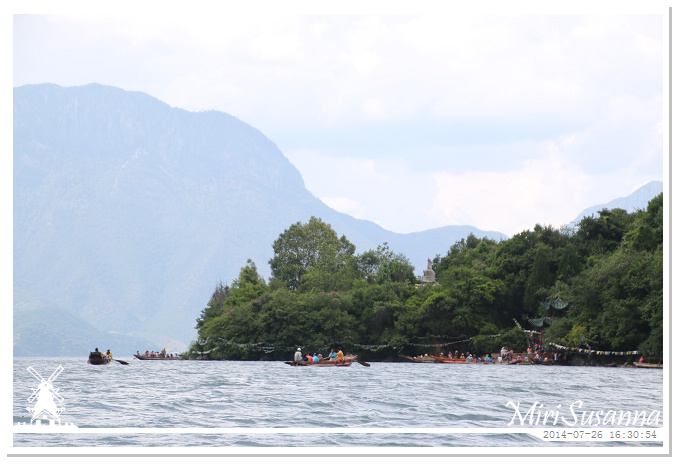
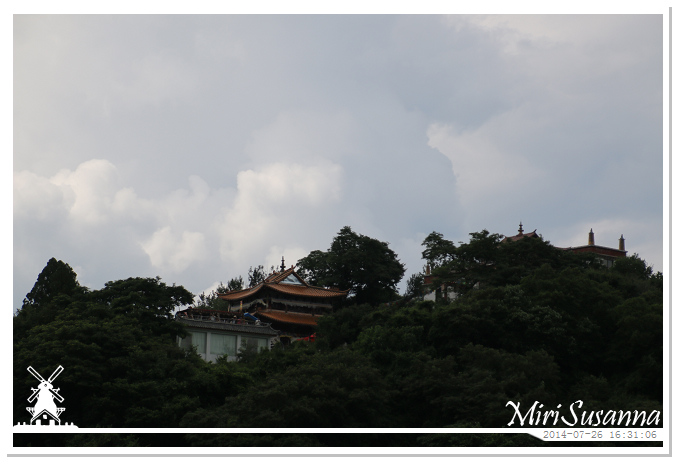
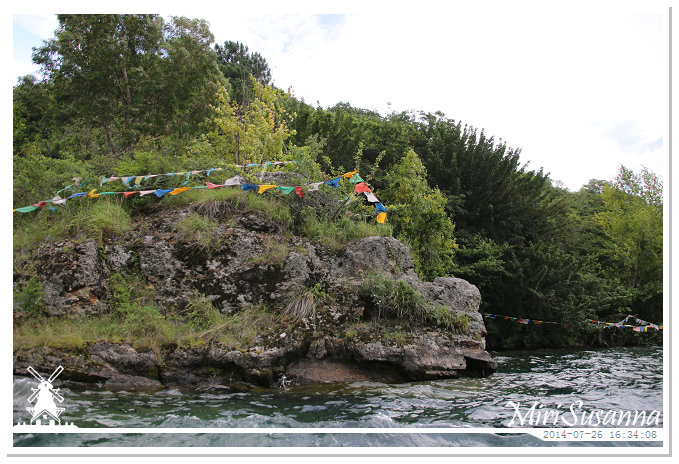
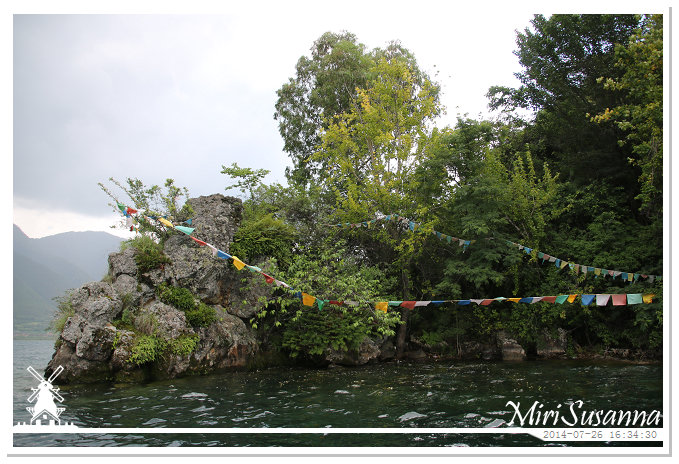
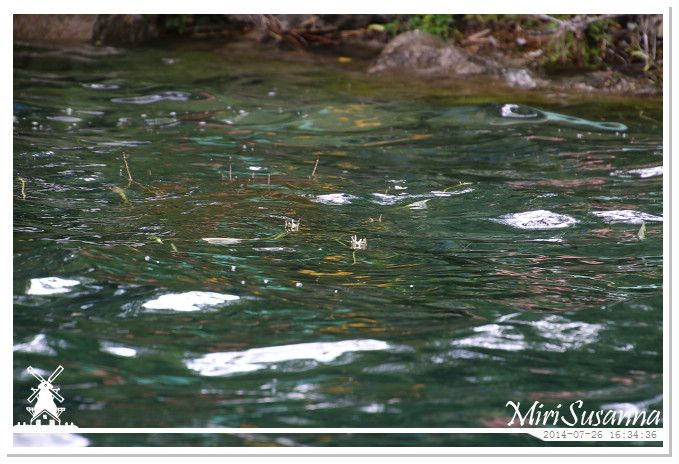
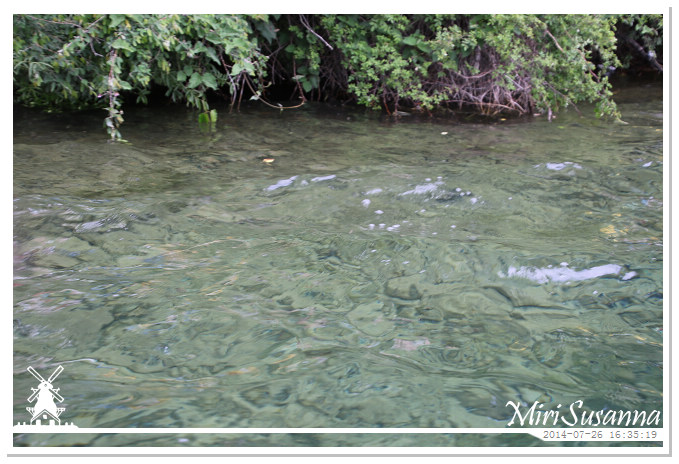




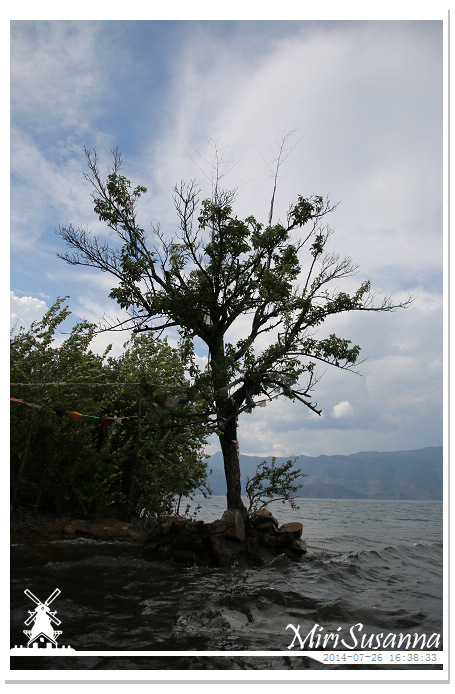
這顆是里務比島上的夫妻樹(情人樹?)之一。
One of the couple trees.
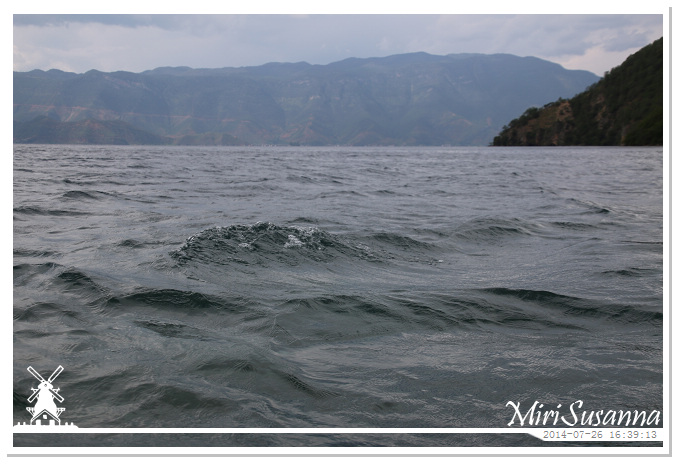
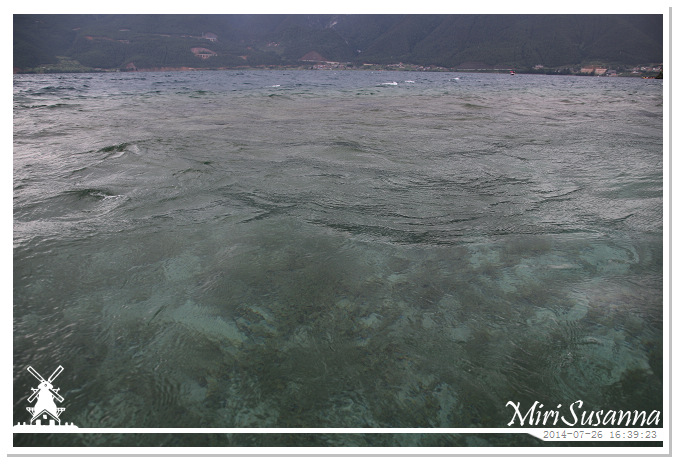
三色水。
Water in three colours.
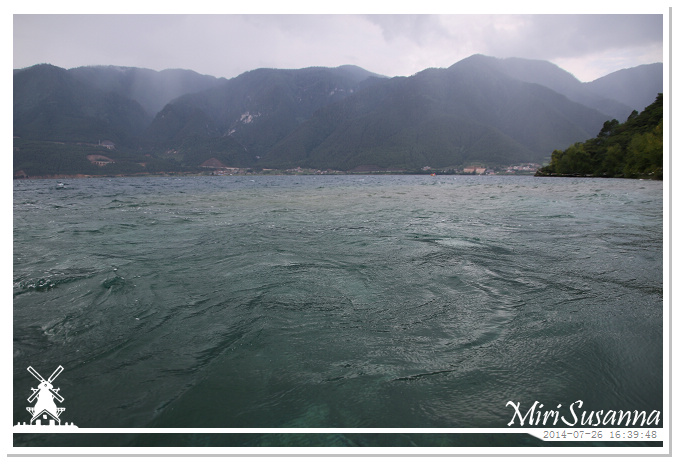
這張看得比較清楚,如沒記錯,這底下有泉眼。
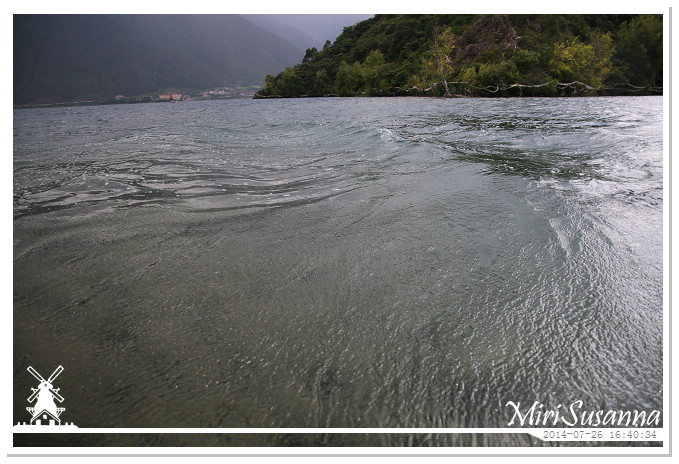
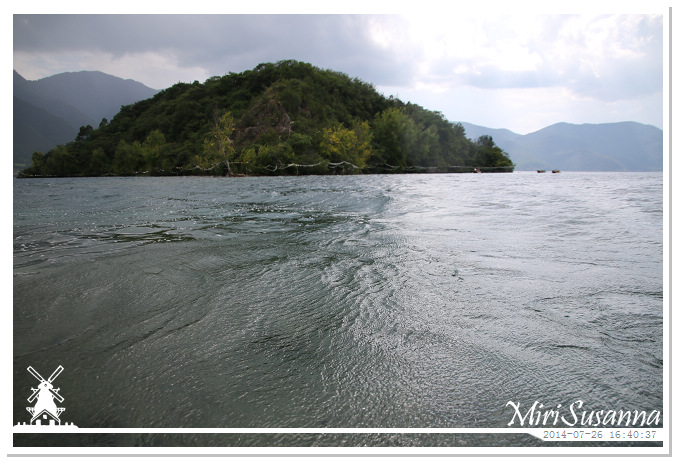

剛剛島上那棵夫妻樹的另一半就在對岸跟他遙遙相望。
This’s the partner of the couple tree at the other side of water.

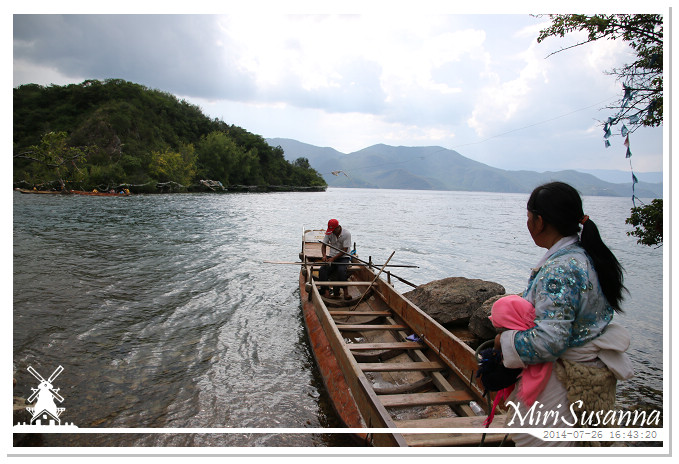
上岸來拍照,我們站的這裡是四川省,島是雲南省。
We’re at Sichuan Province now, the otherside of water is Yunnan Province.

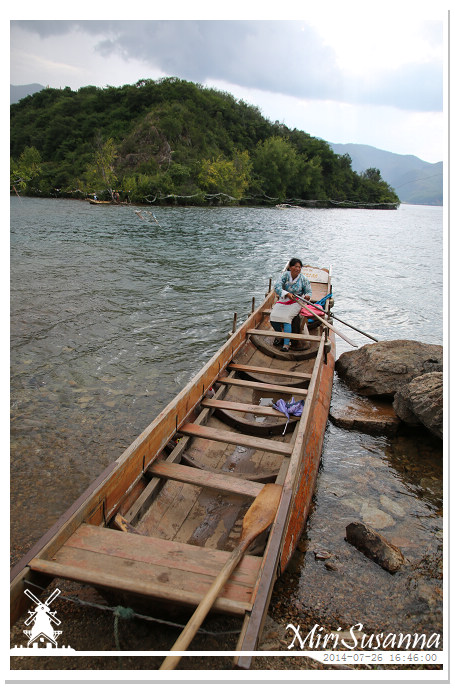
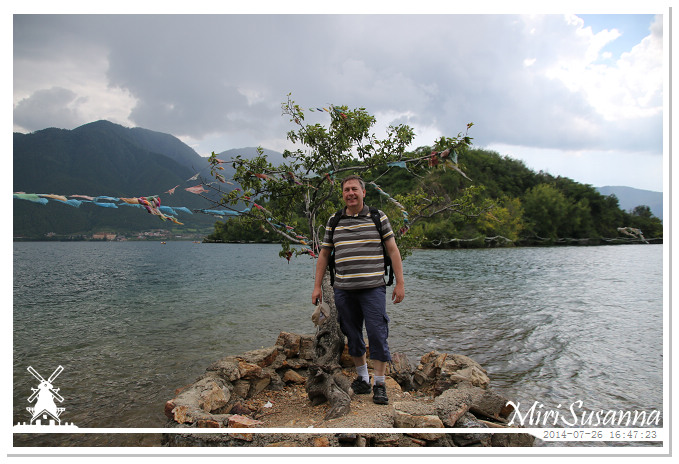

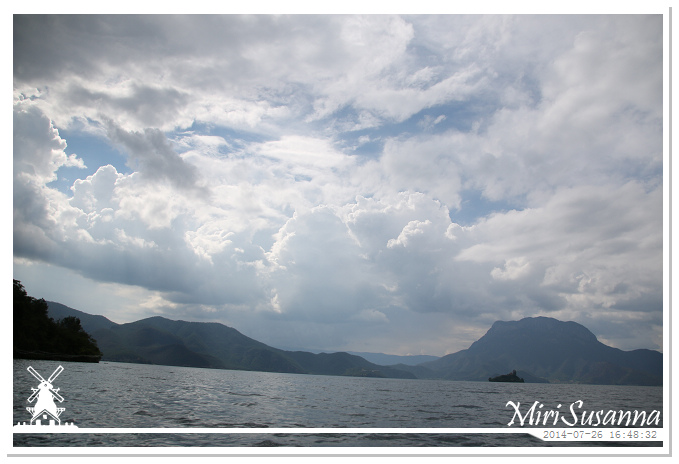
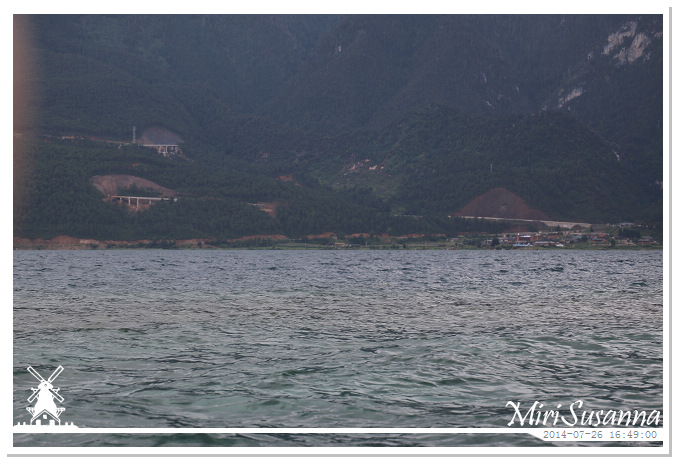
上船後去繞里務比島。
Continue to island.
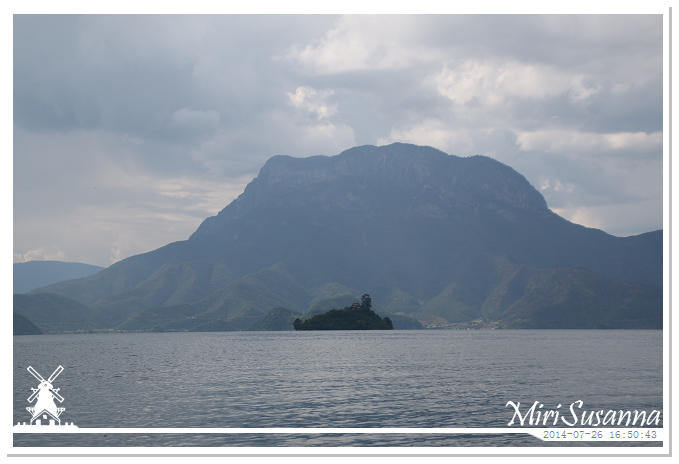

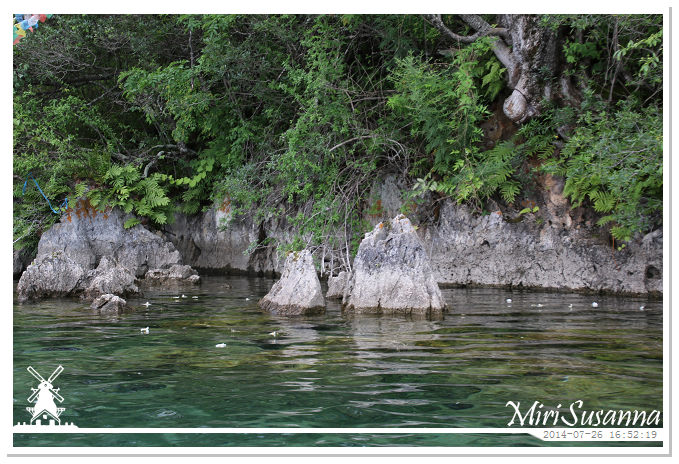
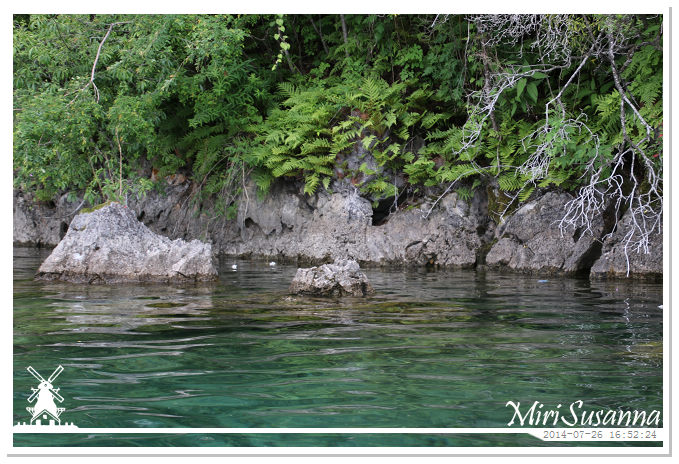
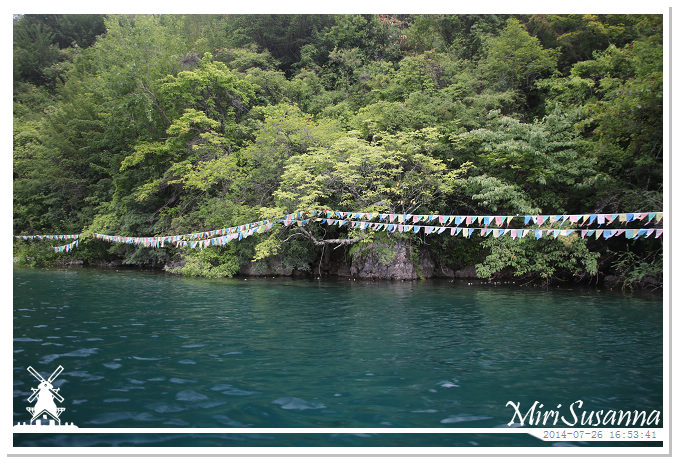
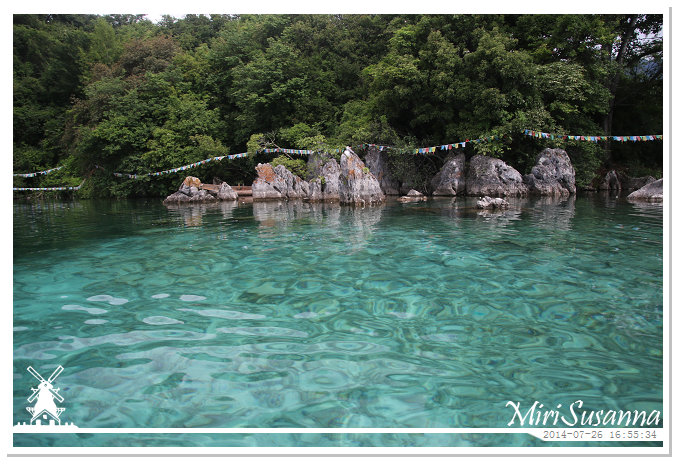
這下面也有泉眼,搖船的阿妹剛說完這裡的水可以直接飲用,坐在我們前面的老兄就往水上吐痰,真的缺德透頂!可惡!
There is underwater spring eye here, the water is so clear as drink water.

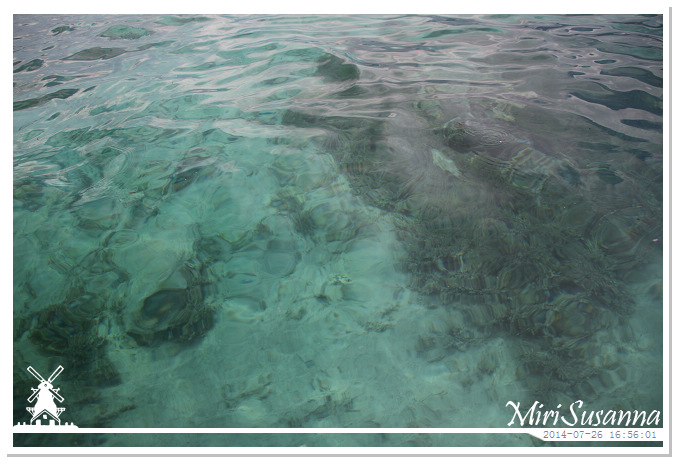
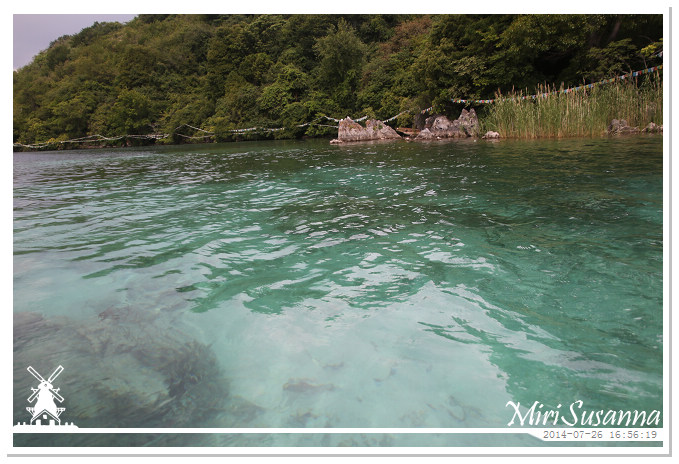
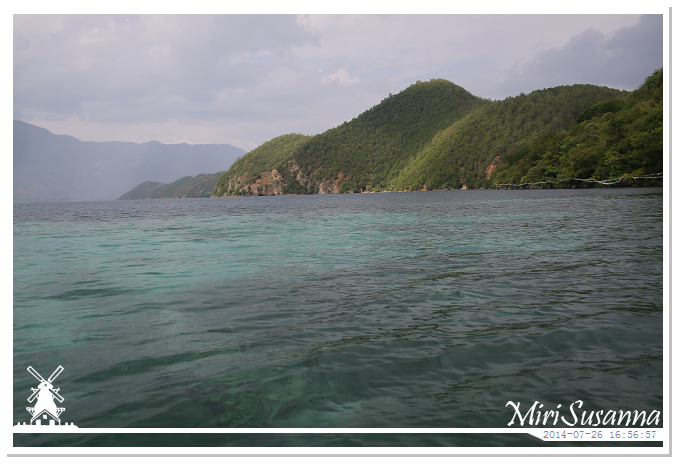
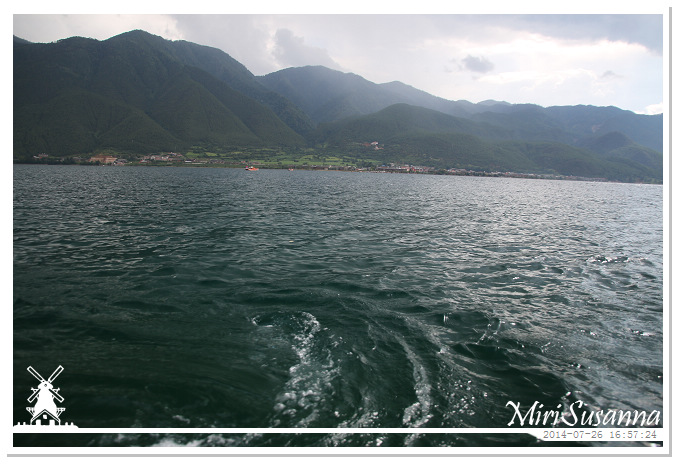
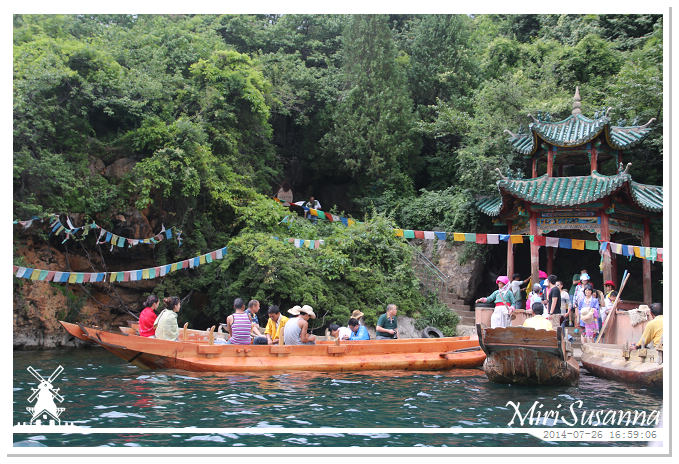
來遊島了。

里務比島。
Liwubi Island.

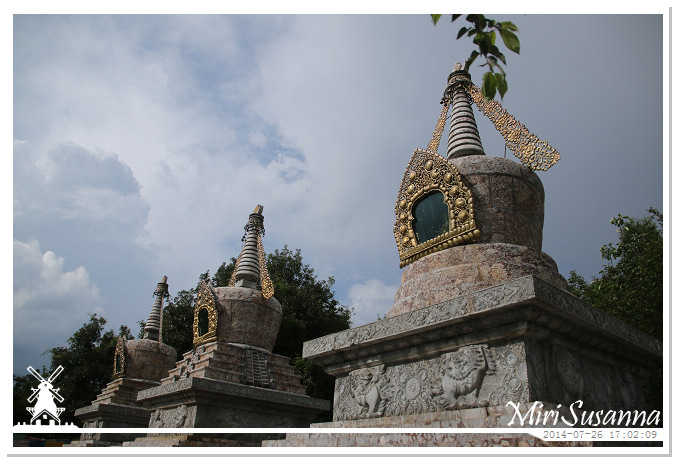
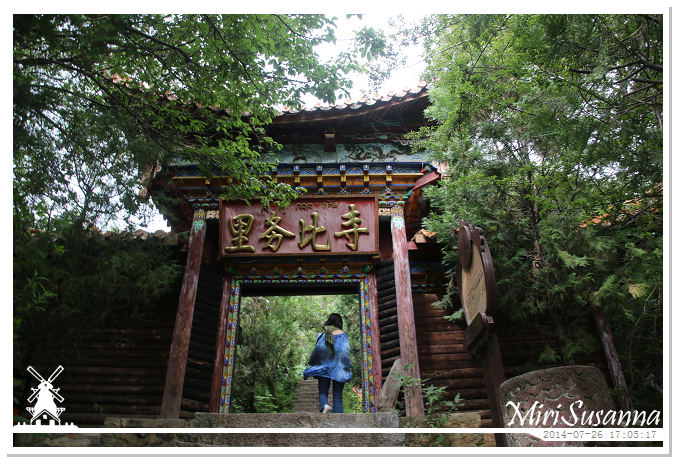
里務比寺。
Liwubi Temple.
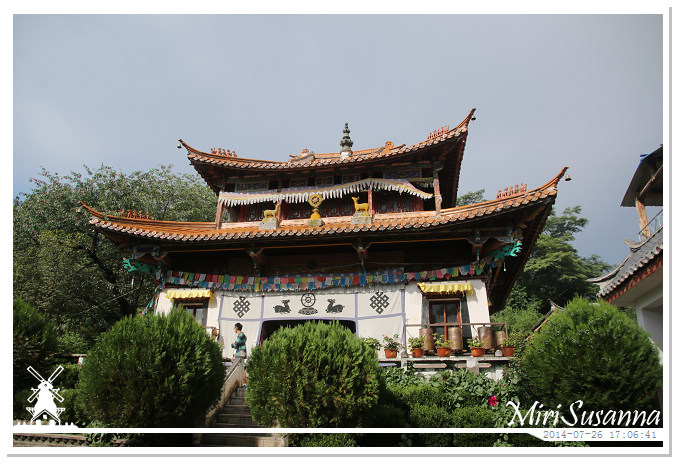
藏傳佛寺。
Liwubi Temple.
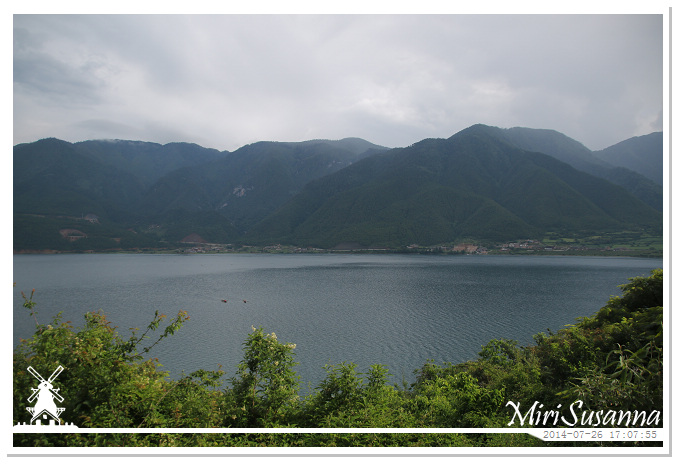
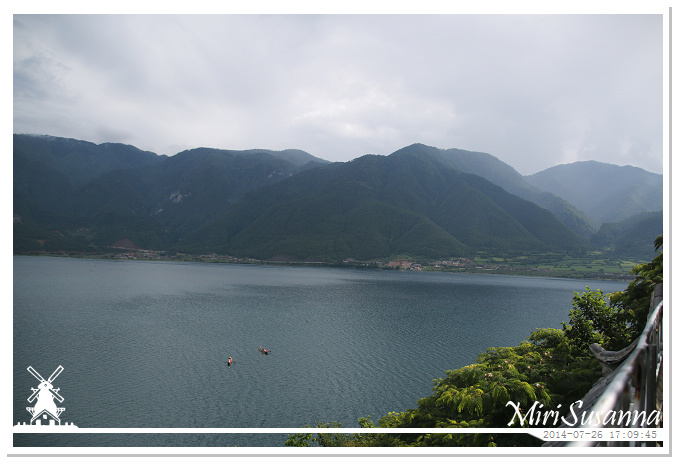
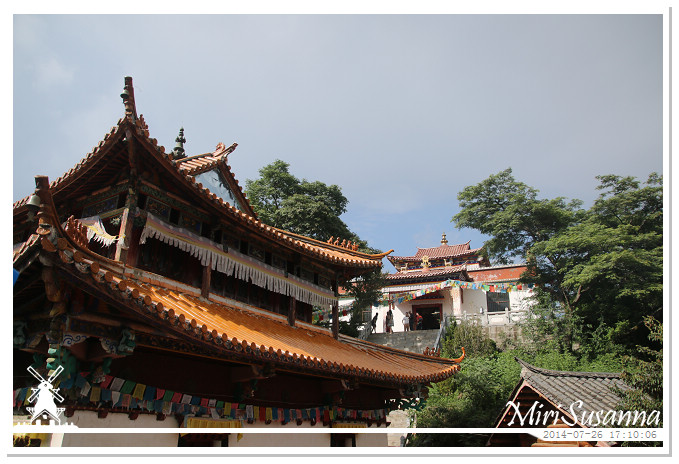
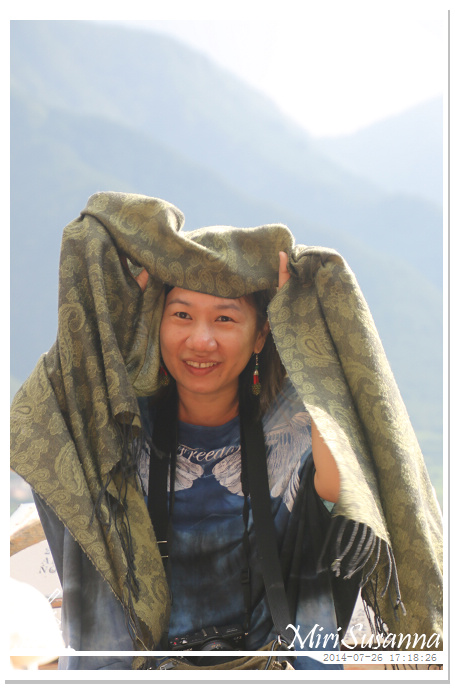
走了一會,我們就趕快回原船佔位子,大妹到船頭去坐了。
We went to our boat and picked a better seat before others came back. Jessie wanted to sit at front.
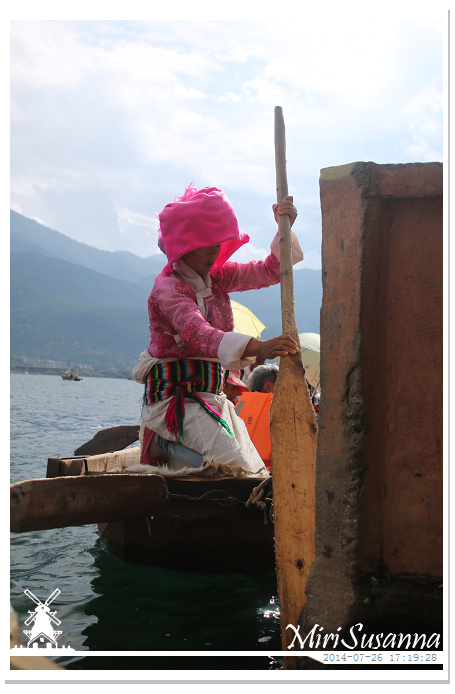
摩梭美女。
Pretty Musou woman.

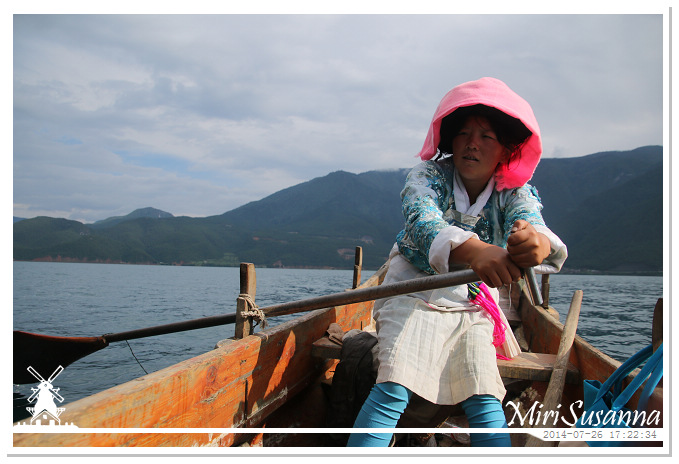
為我們划船的阿妹。在這女兒國,運作起來像合作社,家家都得派代表參與每項勞動,阿妹十六歲時就和阿爸代表他們家來划船。
In this Women’s Kingdom, the society works like cooperation. Every family needs to contribute their energy to run all activities here. This gird represents her family here to paddle the boat everyday.


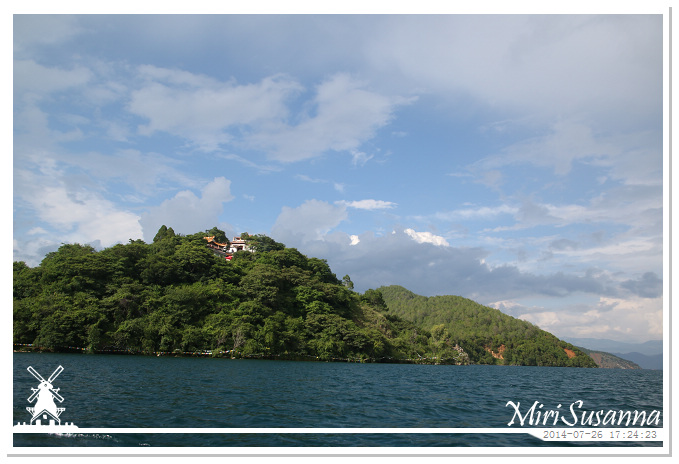

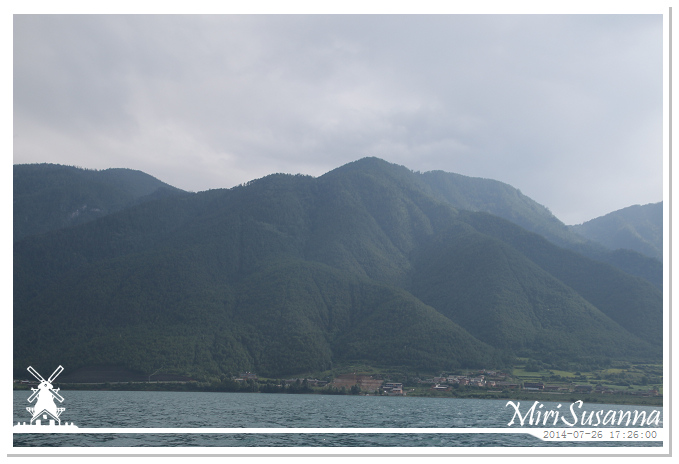
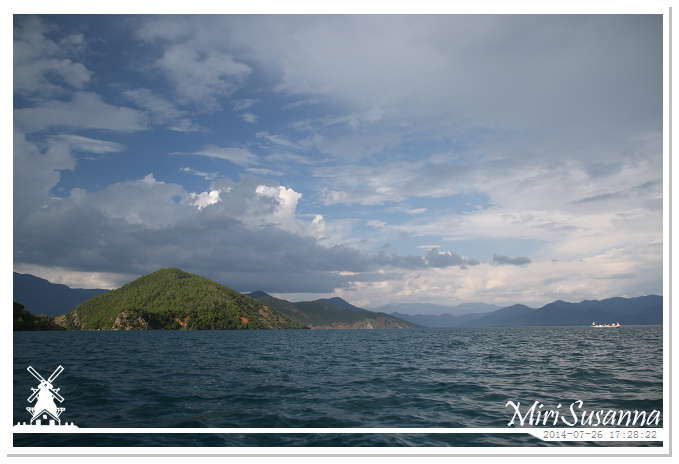
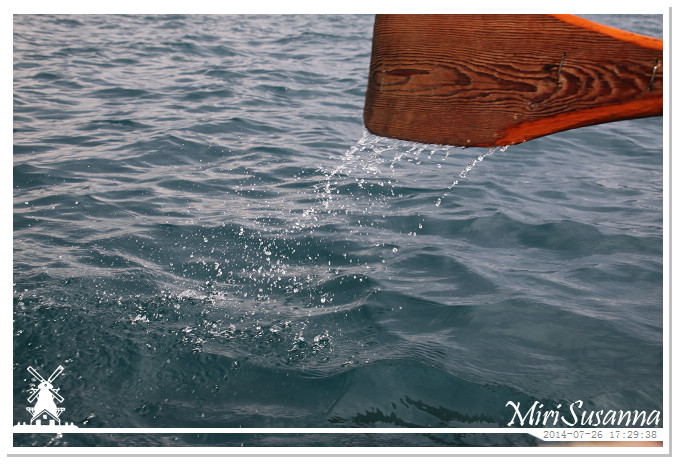
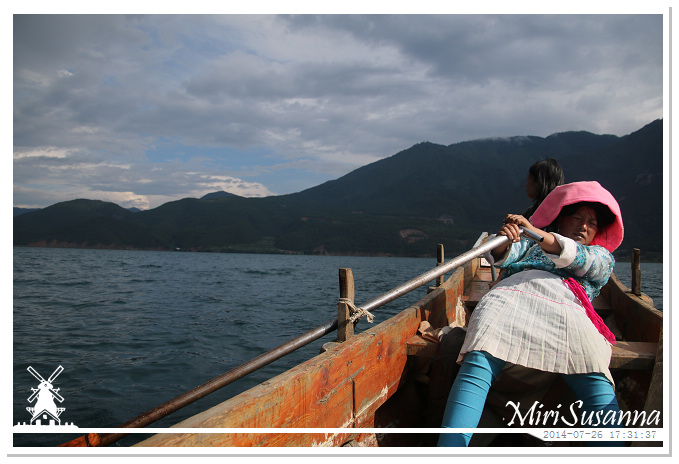
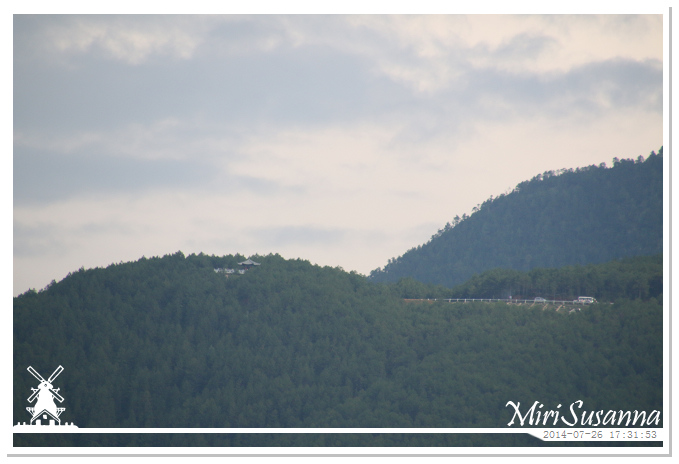
上方是景區的觀景台。
There’s the visitor centre.



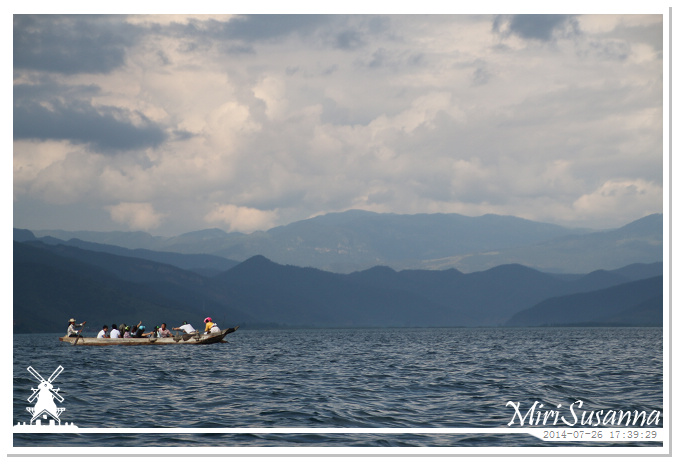
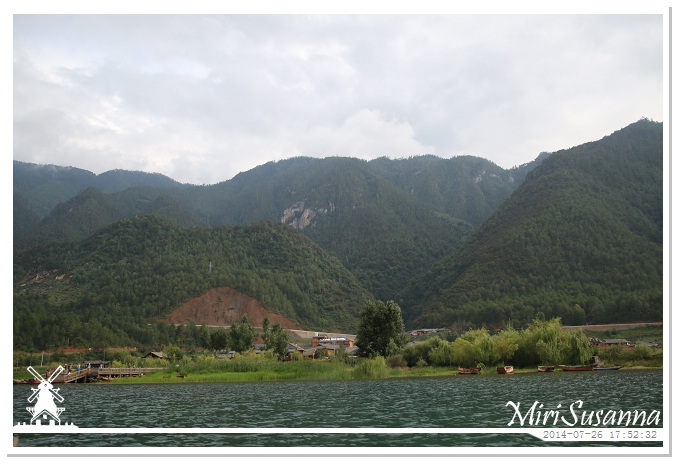
三家村碼頭。
Pier of Sanjia Village.
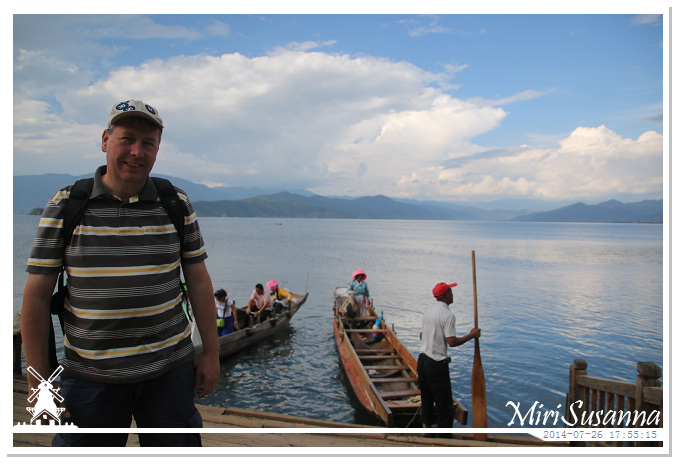
上岸了。
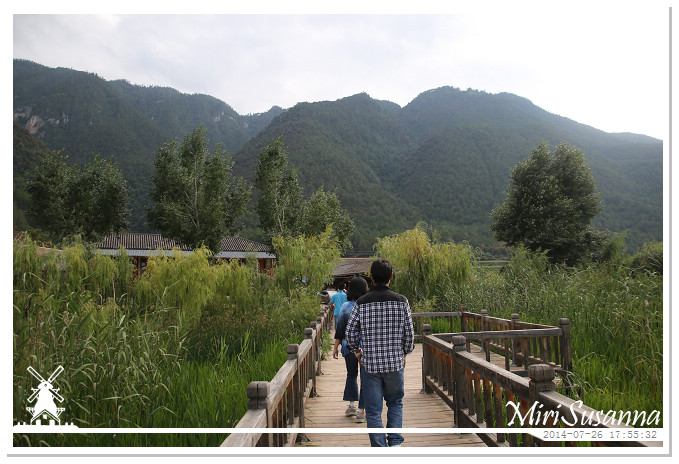
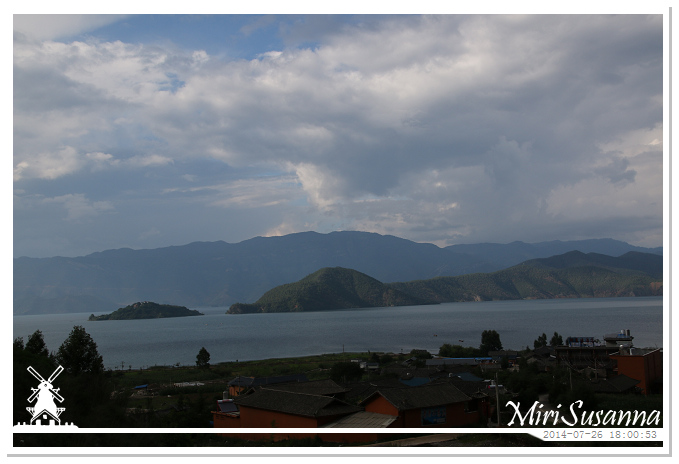
往大落水村的酒店途中。
On the way to our hotel at Daluoshui Village.
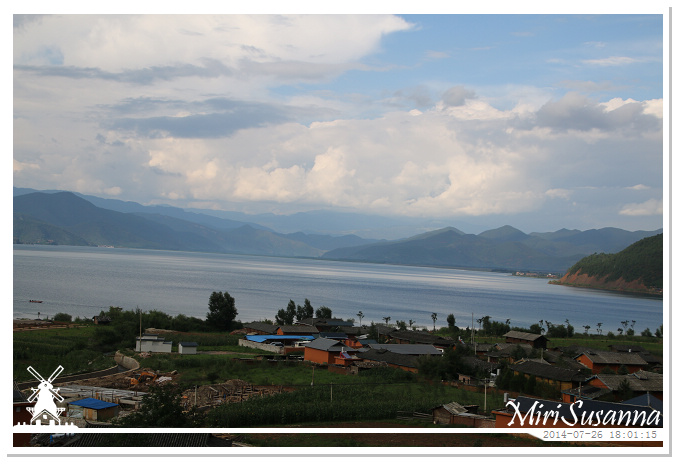
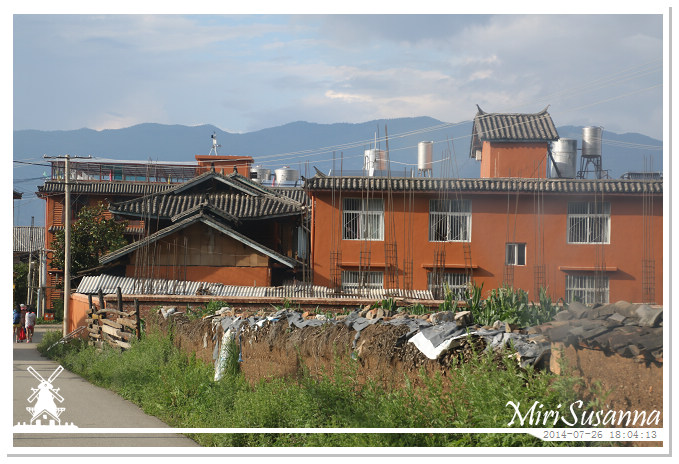
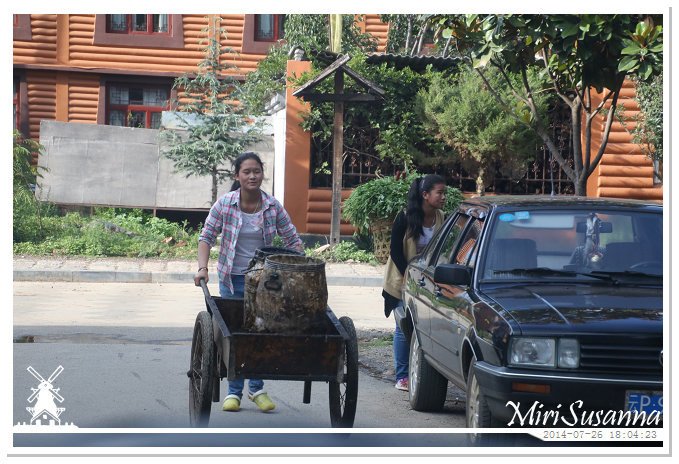
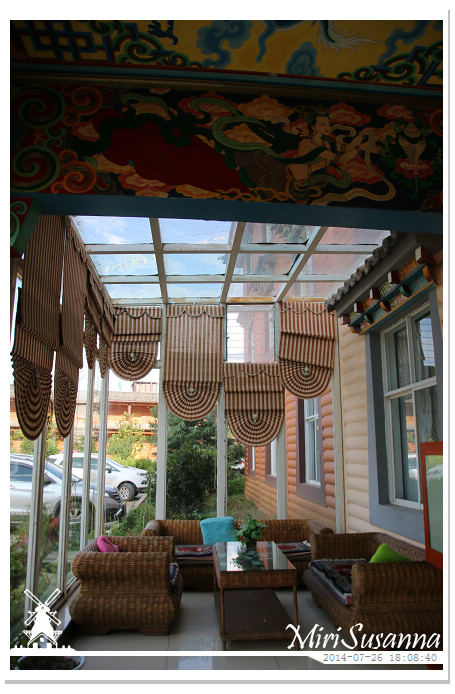
來到我們今晚過夜的女兒國大酒店了。
Arrive our hotel.
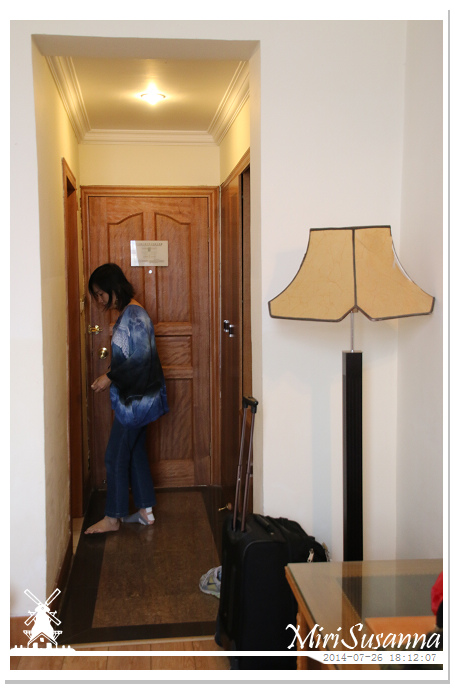
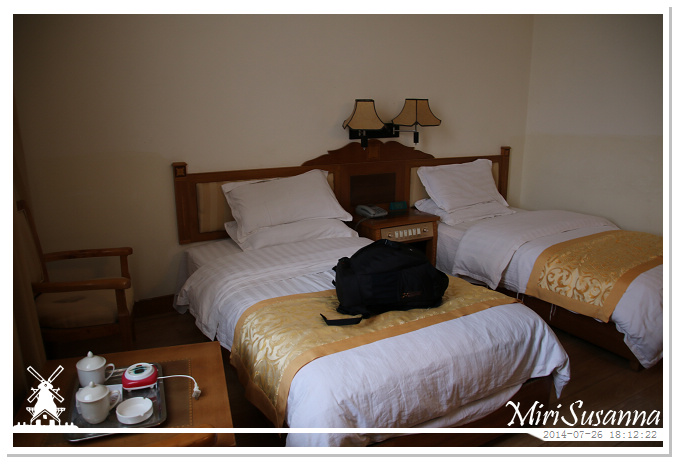
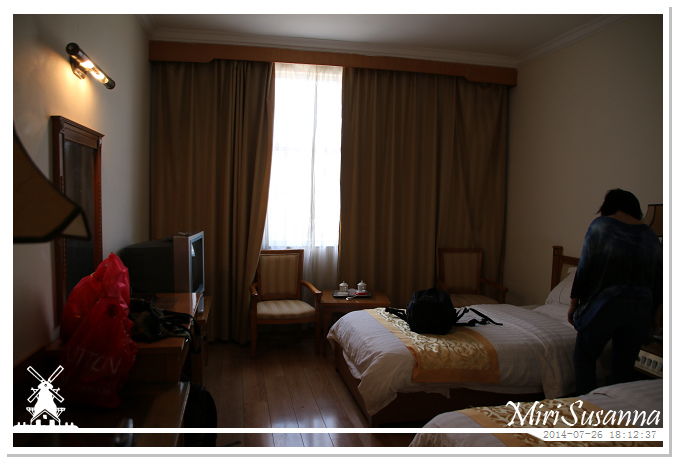
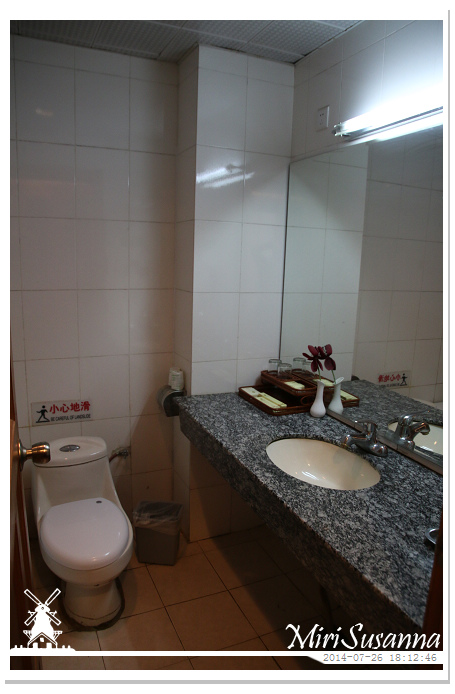

酒店的後方就是農田。
Sights from our room.
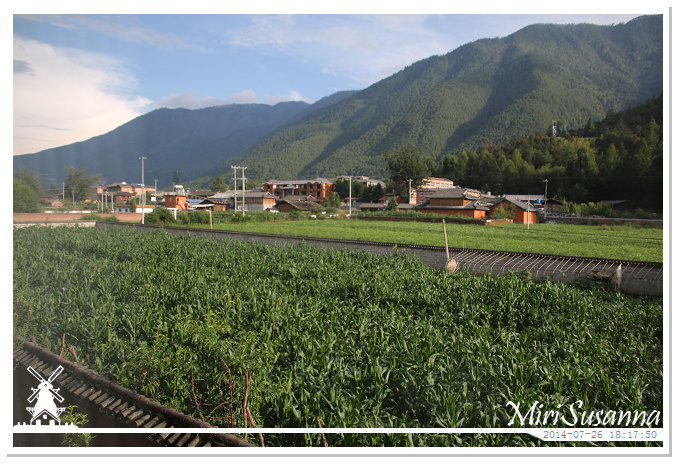
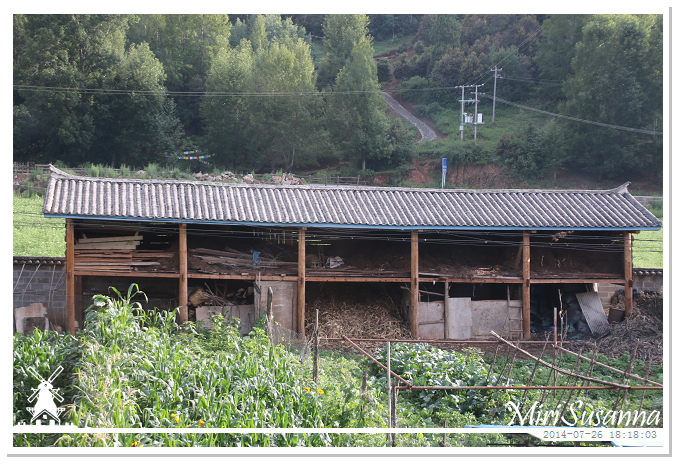
瀘沽湖之介紹(轉自雲南中青國際旅行社,連結:http://www.yunnaninfo.com/chinesebig5/yunnan/lijiang/attraction/luguhu.htm)
瀘沽湖位於雲南寧蒗縣與四川鹽源縣之間,南距寧蒗縣城72公里。湖面海拔2685米,面貌約48.5平方公里,其中雲南境內30.5平方公里,總容水量19.53億立方米,湖水向東流人雅窘江,最後注入金沙江,屬長江水系。該湖平均水深40米,最深處達93.5米,在雲南湖泊中,僅次於澄江撫仙湖,居第二位。
瀘沽湖不僅水清,而且島美。瀘沽湖四周青山環抱,湖岸曲折多灣,共有17個沙灘、14個海灣;湖中散佈5個全島、3個半島、1個海堤連島,一般高出水面15至30公尺,遠看象一隻只綠色的船,飄浮在湖面。其中,寧蒗一側的黑瓦吾島、裡無比島和裡格島,成為湖中最具觀賞和遊覽價值的三個景點,被譽為“蓬萊三島”。黑瓦吾島位於湖心,距離湖岸落水村2500米,島上樹術蔥籠,百鳥群集,是南來北往的候鳥、野鴨的棲息之處,也是昔日永甯土司阿雲山總管的水上行宮,美國學者洛克也曾旅居。
Introduction of Lugu Lake (http://www.travelchinaguide.com/attraction/yunnan/lijiang/lugu_lake.htm)
Lugu Lake lies 200 kilometers (approximately 124 miles) from the center of Lijiang City, on the border between Ninglang County in Yunnan Province and Yanyuan County in Sichuan Province. It is like a beautiful pearl shining among the hills of the northwest plateau in Yunnan.
The lake is in the shape of a horse’s hoof – long from north to south, and narrower from east to west. The vista of the lake changes constantly throughout the day. The morning mist mixed with the light of the rising sun gives it an orange glow covered by mist. When the light of sun causes the hills to throw their shadows onto the water, the lake has a jade green color. The lake is calm and dark green in the evening when the sun sinks, and is peaceful when night comes. Gentle wind blows and water ripples.
On the lake there are five islands. They are different sizes and are like green boats floating on the water. Heiwawu Island, Liwubi Island, and Lige Island are most notable. Heiwawu Island is in the center and has a variety of birds living on it. The smallest is Nixi Island – an oblong rock covered with shrubs and moss. Besides the five islands, there are also three peninsulas and an island which is linked to a seawall on the shore by a path paved with small stones.
House of Mosuo people by Luogu Lake
Mosuo Family at Luogu LakeMystery and charm surround the lake, partly because it was once an unspoiled place and still retains much of its totally natural beauty, but mostly because the Mosuo people who live there form a matriarchal society. There is no marriage. Men stay in the women’s home as mates called ‘Axia’ and the intimate relationship lasts as long as they like. Children are brought up by women, and use the surname of their mothers. Families are composed of the members of the matrilineal kin. Women operate production and management, and hold the principal position in the society, forming a modern day ‘woman’s kingdom’, which adds mystique to this place.
The lake is encircled with hills. The water is clean and inviting, with fish swimming in it. The forest around is dense and the air is fresh. This is a place that is little tainted by modern industry – the natural beauty is retained. The weather is pleasant – it is cool in summer and warm in winter. All the seasons are as comfortable as spring, but the best seasons to come here are spring and summer when the hills are emerald green, the flowers are in bloom and the birds are singing happily.